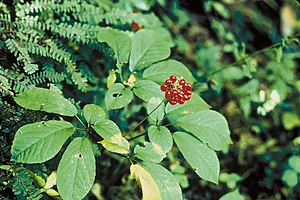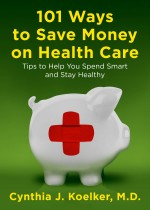By popular demand I have imported this article from my other blog, www.armageddonmedicine.net. It is excerpted from my upcoming book, Armageddon Medicine.
* * *

- Image via Wikipedia
The American medical establishment is beginning to examine the role of herbal therapies in the treatment of diabetes mellitus, primarily Type 2 (adult onset, non-insulin dependent). Unfortunately, without pharmaceutical companies to fund the research, comprehensive studies are not likely to be performed. To date, there are no official recommendations for using herbal preparations in the treatment of diabetes mellitus.
However, in the event no medication is available, what treatments might diabetics consider for themselves? Is there any scientific evidence for effectiveness of herbal therapy?
Chromium picolinate is known to lower blood glucose levels in both humans and animals, probably by lowering insulin resistance. Limited medical literature reports improvements in long-term blood sugar control in patients taking 100 to 500 micrograms twice daily. There have been a few reports of renal (kidney) failure with high dosages.
It has been proposed that garlic may lower blood sugar levels in humans, since it is effective in alloxan-diabetic rats. How garlic may do so remains under study, and it is not recommended for treatment of diabetes in humans at this time.
Alpha lipoic acid (found in meat, broccoli, and potatoes) may help treat nerve damage due to diabetes, but does not lower blood sugar levels. The dosage noted to be effective for diabetic neuropathy is 600 to 1200 mg per day.
Ginseng and psyllium may also lower blood sugar a little, but again, this effect cannot be guaranteed. However if no medication is available, Panax ginseng (100-200 mg per day) may be somewhat effective.
I have had patients who have tried these herbal preparations for their diabetes, but none who experienced a reversal of the disease.
Some of the evidence for lowering of blood glucose levels using herbal preparations comes from anecdotal stories of patients who have experienced hypoglycemia (low blood sugar) when chromium picolinate or ginseng was added to their medication regimen.
If an herb can lower your blood sugar 50 points (which I’m estimating), that’s great, but also much less effective than medication. Still, it’s better than nothing, and when combined with calorie restriction and weight loss, herbal preparations are certainly a consideration when or if medication is unavailable.
Of course, most of us are not growing ginseng in our backyards, and long-term supplies would be a challenge for herbs and vitamins as well as medications. However, since these products are available over the counter, stockpiling enough for several years of therapy is a consideration.
For a good review of the literature regarding herbal treatment of diabetes, see The American Family Physician, September 2000, available online at http://www.aafp.org/afp/20000901/1051.html .
For information regarding use of ginseng see The American Family Physician, October 2003, also available online at http://www.aafp.org/afp/2003/1015/p1539.html.
Information on treating diabetes with herbal products may also be found at the National Center for Complementary and Alternative Medicine at: http://nccam.nih.gov/health/diabetes/CAM-and-diabetes.htm

- Image via Wikipedia
Related articles
- Diabetes and Weight Loss: Finding the Right Path (diabetes.webmd.com)



This chronic illness can cause high blood sugar levels which in turn can lead to the damaging of your nerves and your blood vessels. Its important to know about the risks associated with high blood levels. Nerve damage is one of the common risks associated with high blood sugar levels. Since high levels of blood sugar can cause damage to blood vessels, the blood vessels that are found in the retina are susceptible to damage.
[Yes, prolonged elevated blood sugar can harm a long list of body parts: eyes, heart, kidneys, nerves, circulation, skin, feet, brain . . . almost every part. - Doc Cindy]
You left off a couple of very effective remedies: Cinnamon and Gymnema Sylvestra.
High blood sugar should never be left untreated because the consequences can be dangerous and even life threatening. Lowering high blood sugar is essential for diabetes sufferers because this is the only way in which they can keep the disease under control and avoid complications.
[Very mild diabetes is often treated with diet alone. Too low of blood glucose levels can be as serious as too high, including disorientation and even coma, so using meds for mildly elevated blood sugar levels is not necessarily advisable. Anyone with diabetes should be under a physician's care, especially since mild diabetes can become uncontrolled diabetes. - Doc Cindy]